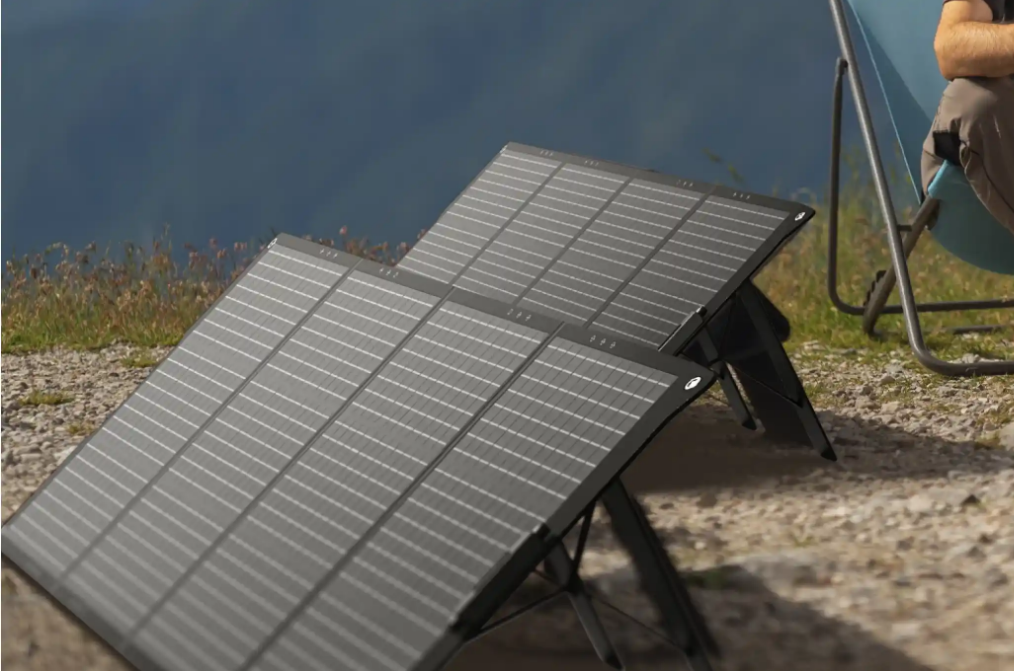 Portable power stations are becoming increasingly popular as they provide a convenient and safe way to generate power in any location. Whether you’re camping or need backup power during a power outage, there are various portable power stations available on the market to suit your specific needs. In this article, we’re breaking down the different types of portable power stations available so you can make an informed decision.1. Lithium-ion Portable Power Stations:Lithium-ion portable power stations are often the most popular choice for outdoor enthusiasts and those who require backup power for their home. These power stations utilize lithium-ion batteries that are lightweight, durable, and have a longer lifespan compared to other battery types. They also have a higher energy density, which means they can provide more power in a smaller package. One downside of lithium-ion portable power stations is that they can be more expensive.2. Lead Acid Portable Power Stations:Lead-acid portable power stations use lead-acid batteries as a power source. These types of batteries have been around for a long time and are relatively cheap compared to other battery types. Lead-acid batteries provide stable power output and have a longer lifespan than other battery types, but they are bulkier and heavier than lithium-ion power stations. This makes them less suitable for outdoor activities, but they may be a good option for home backup power.3. Solar-Powered Portable Power Stations:Solar-powered portable power stations are an excellent choice for those who want to use renewable energy to generate power. These power stations utilize solar panels to charge the internal battery, which means you don’t have to rely on grid power to recharge the unit. This type of power station is perfect for outdoor enthusiasts who spend most of their time in sunny locations. However, they may be less efficient in areas with low sunlight.4. Fuel-Powered Portable Power Stations:Fuel-powered portable power stations use gasoline or propane as a power source. These types of power stations are great for those who need to generate a large amount of power for an extended period. They’re ideal for construction sites, RV travel, or events. Fuel-powered portable power stations can be noisy and produce emissions, so they’re not suitable for indoor use or areas with strict noise regulations.Conclusion:Portable power stations are an excellent investment for anyone looking for a reliable source of backup power, whether you’re spending time outdoors or need an emergency power supply for your home. The type of portable power station you choose depends on your needs and preferences.Lithium-ion portable power stations are lightweight and convenient, while lead-acid portable power stations are bulkier but have a longer lifespan. Solar-powered portable power stations are perfect for those who want to use renewable energy, and fuel-powered portable power stations are great for generating a large amount of power for an extended period.When it comes to choosing a portable power station, make sure to consider factors such as battery type, capacity, weight, and features such as USB ports or AC outlets. By doing so, you’ll find the right portable power station that will meet your power needs anytime and anywhere.
Portable power stations are becoming increasingly popular as they provide a convenient and safe way to generate power in any location. Whether you’re camping or need backup power during a power outage, there are various portable power stations available on the market to suit your specific needs. In this article, we’re breaking down the different types of portable power stations available so you can make an informed decision.1. Lithium-ion Portable Power Stations:Lithium-ion portable power stations are often the most popular choice for outdoor enthusiasts and those who require backup power for their home. These power stations utilize lithium-ion batteries that are lightweight, durable, and have a longer lifespan compared to other battery types. They also have a higher energy density, which means they can provide more power in a smaller package. One downside of lithium-ion portable power stations is that they can be more expensive.2. Lead Acid Portable Power Stations:Lead-acid portable power stations use lead-acid batteries as a power source. These types of batteries have been around for a long time and are relatively cheap compared to other battery types. Lead-acid batteries provide stable power output and have a longer lifespan than other battery types, but they are bulkier and heavier than lithium-ion power stations. This makes them less suitable for outdoor activities, but they may be a good option for home backup power.3. Solar-Powered Portable Power Stations:Solar-powered portable power stations are an excellent choice for those who want to use renewable energy to generate power. These power stations utilize solar panels to charge the internal battery, which means you don’t have to rely on grid power to recharge the unit. This type of power station is perfect for outdoor enthusiasts who spend most of their time in sunny locations. However, they may be less efficient in areas with low sunlight.4. Fuel-Powered Portable Power Stations:Fuel-powered portable power stations use gasoline or propane as a power source. These types of power stations are great for those who need to generate a large amount of power for an extended period. They’re ideal for construction sites, RV travel, or events. Fuel-powered portable power stations can be noisy and produce emissions, so they’re not suitable for indoor use or areas with strict noise regulations.Conclusion:Portable power stations are an excellent investment for anyone looking for a reliable source of backup power, whether you’re spending time outdoors or need an emergency power supply for your home. The type of portable power station you choose depends on your needs and preferences.Lithium-ion portable power stations are lightweight and convenient, while lead-acid portable power stations are bulkier but have a longer lifespan. Solar-powered portable power stations are perfect for those who want to use renewable energy, and fuel-powered portable power stations are great for generating a large amount of power for an extended period.When it comes to choosing a portable power station, make sure to consider factors such as battery type, capacity, weight, and features such as USB ports or AC outlets. By doing so, you’ll find the right portable power station that will meet your power needs anytime and anywhere.
Søg
Populære opslag







